Reviews
Nicholas Ray
USA, 1954
Credits
Review by Jenny Jediny
Posted on 26 August 2008
Source Universal Pictures DVD (R2)
Categories The Mystic: The Films of Nicholas Ray
Neither Miss Crawford nor director Nicholas Ray has made [Johnny Guitar] any more than a flat walk-through - or occasional ride-through - of western clichés… That’s about all there is to it.
Bosley Crowther (The New York Times May 28, 1954)
If Johnny Guitar could be whittled down to one word, it would not be cliché. Nicholas Ray’s now celebrated and sought-after “Western” (more on Ray’s cockeyed distortion of the genre later) is still weird, and still deliciously audacious more than fifty years after its original release. Ray’s first film as a director for hire after finishing out his contract with RKO was badly battered by critics and audiences in 1954, neither of whom were used to seeing Joan Crawford in such butch display, nor the “slightly awful”1 Trucolor of the picture—and then there’s the meandering storyline, that manages slip in Sterling Hayden as a gunslinger turned minstrel and a demonic nemesis for Crawford in the form of Mercedes McCambridge, who masks her lesbian lust with violence. Johnny Guitar exceeds expectations not merely because it’s a great film, but because it demolishes any conceptions you may have had prior to viewing it.
There are two major themes running through Johnny Guitar - seclusion and sexuality - that are combined in the lead character of Vienna, portrayed by Joan Crawford. A self-made modern woman, Vienna has moved West to open her own saloon/casino, and encourages the railroad laying tracks through town, a bid for modern capitalism that has the locals, led by McCambridge’s Emma, up in arms. Bitter rivals, Vienna and Emma overwhelmingly dominate not only the town but also the movie; the men catering to them either comply in adoration (to Vienna) or out of fear (to Emma), with desire mixed somewhere in between. However, despite Vienna having two male love interests in both Johnny and The Kid, the strongest sexual tension in the film remains between the two women. Observe Emma’s fury (and it really is fury) at Vienna, and the eye contact as they regard one another—the intensity is unmistakable, and perhaps even more heavily brought on from Emma. McCambridge’s portrayal strips any femininity from Emma, removing credibility from the claims that she’s sweet on The Kid, and reinforcing the idea of sexual denial on her part toward Vienna, who won’t have her in any way. Consider the look of ecstasy on Emma’s face as she burns Vienna’s casino to the ground, destroying what she can’t have—the adrenaline rush expressed by Emma wringing her hands is extraordinarily sexual. Reportedly, Joan Crawford insisted on the female leads as the script’s focus (and tortured co-star McCambridge on the set); if Crawford did force her hand as the film’s star, Ray’s intricate set-ups2, such as the fantastic stairway in the center of the saloon, and his ability to convey power play through staging are key in maintaining the dynamic battle waging between the two women.
While Vienna clearly has issues with Emma, emotionally she seems devoted to Johnny, a relationship that displays a world-weary, but gentle tenderness. Long-separated, the two talk about their past with a cynicism that enriches not only their relationship but makes their characters feel as though they have a genuine back story:
JOHNNY: How many men have you forgotten?
VIENNA: As many women as you’ve remembered.
JOHNNY: Don’t go away.
VIENNA: I haven’t moved.
JOHNNY: Tell me something nice.
VIENNA: Sure, what do you want to hear?
JOHNNY: Lie to me. Tell me all these years you’ve waited. Tell me.
VIENNA: [expressionless, tone continues for next two lines] All those years I’ve waited.
JOHNNY: Tell me you’d a-died if I hadn’t come back.
VIENNA: I would have died if you hadn’t come back.
JOHNNY: Tell me you still love me like I love you.
VIENNA: I still love you like you love me.
JOHNNY: Thanks. Thanks a lot.
There’s no pretense here of innocence, or the foolish conceit of “true love,” between the lovers—both know the other has not been faithful physically, yet loyalty remains. This code of honor is a strange combination of the Western and the Melodrama, in terms of fidelity between lovers, rather than lawmen.
Ray visually breaks down genre and film codes as well, specifically with his surreal color palette. Production company Republic Pictures employed Trucolor with Johnny Guitar, a two-strip process (red and green) created by their own division of Consolidated Film Industries. Color is vital in Johnny Guitar; many (including one of the film’s most verbose champions, Martin Scorsese) have made much ado about the film’s color assignments, and with good reason. The “law” is outfitted in villainous black, while the outlaws wear red and white (and an extraordinarily striking white at that, the wedding-like gown worn by Vienna during her arrest). In direct opposition to the traditional Western, so perfectly captured by directors such as John Ford, Vienna - and Nick Ray’s West - is in no way realistic, but a dream-ridden landscape that refuses clear-cut categorization.
In remaining ambiguous, the film leaves not only its notions of sexuality up for debate, but also its commentary on isolation. As Johnny Guitar, portrayed by the deadpan Sterling Hayden, casually comments to an inquisitive gunslinger on his identity, “I’m a stranger here myself,” his words will reverberate throughout the remainder of Johnny Guitar, applying not only to the strummer, but to his lover and partner Vienna, and certainly to director Nicholas Ray. Ray’s affection for outsiders, and his own slow burn to recluse-status is at its peak here, and the script, contributed to by blacklisted screenwriter Ben Maddow, clearly taps into the then-hot political climate of McCarthyism. The rabid attacks on both Vienna and The Kid by Emma, as well as her gang’s disregard for proper criminal procedure are what lead to blind accusation, and Vienna’s brief encounter with a noose due to mob mentality. The outcasts here have a better grasp on reality than the local law, and as a result suffer for it; Ray seems to feel that the enlightened - not only here, but also in Rebel Without a Cause and his earlier noirs - are fated to suffer for their emotional honesty.
Anthony Lane describes Johnny Guitar as “howlingly close to mad;” the description is not unfitting, as Ray’s efforts produced a result that is as unorthodox as it is marvelous. There doesn’t seem to be any other film quite like Johnny Guitar, and with contemporary cinema’s fascination with pastiche, there’s an endless amount of interpretation yet to be garnered from the film and its contemplations on identity and gender, compliance and autonomy. But surely, that’s not all there is to it.
- Bosley Crowther again. ↩
- At the time, Republic was considered the most prestigious of the minor studios and Ray’s contract with them gave him a great deal of creative freedom despite the film’s modest budget. One of the first things he did was hire Philip Yordan for a complete rewrite of the script. Yordan later said, “He collaborated with me less on the dramatic than the architectural level, creating settings like the saloon, working on the geometrical relationships between places.” - Jeff Stafford, notes from TCM ↩
More The Mystic: The Films of Nicholas Ray
-
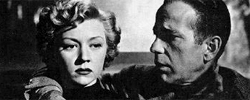
In A Lonely Place
1950 -
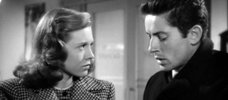
They Live By Night
1948 -
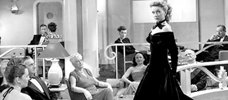
A Woman’s Secret
1949 -
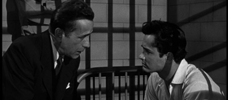
Knock on Any Door
1949 -

Born to Be Bad
1950 -
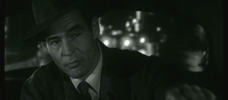
On Dangerous Ground
1952 -
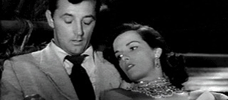
Macao
1952 -
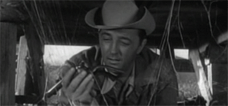
The Lusty Men
1952 -

Johnny Guitar
1954 -
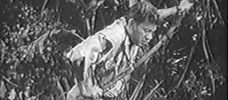
High Green Wall
1954 -
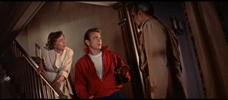
Rebel Without a Cause
1955 -
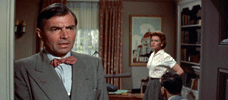
Bigger Than Life
1956 -
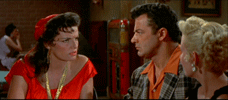
Hot Blood
1956 -

The True Story of Jesse James
1957 -
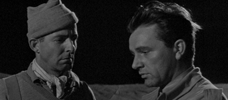
Bitter Victory
1957 -

Party Girl
1958 -

King of Kings
1961 -
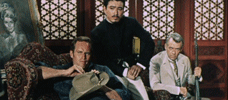
55 Days at Peking
1963 -

The Janitor
1974 -

We Can’t Go Home Again
1973-1976 -
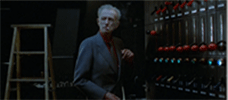
Lightning Over Water
1980
We don’t do comments anymore, but you may contact us here or find us on Twitter or Facebook.



